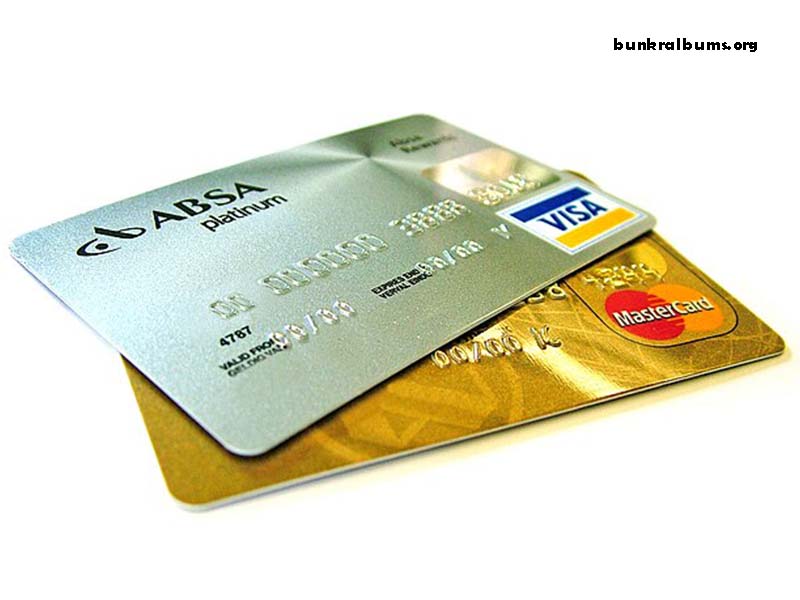In today’s fast-paced world, travel cards are essential tools for business professionals and government employees who need to travel frequently for work. Among these, the restricted travel card plays a specific role. The issuance of a restricted travel card often stems from particular circumstances that set it apart from regular travel cards. In this comprehensive guide, we will explore the various situations that may result in an individual being issued a restricted travel card, the implications of holding such a card, and why this form of card management exists.
What is a Restricted Travel Card?
Before diving into the situations that can lead to someone receiving a restricted travel card, it’s essential to understand what a restricted travel card is. A restricted travel card is a type of credit card often issued by government agencies, large corporations, or other entities that facilitate work-related travel. Unlike standard or “unrestricted” travel cards, restricted cards come with several limitations in terms of credit limits, usage, and other factors that make them a more controlled form of expense management.
These limitations make restricted travel cards ideal for monitoring expenditures and minimizing risks associated with overuse, misuse, or lack of financial responsibility.
Situations That Lead to the Issuance of a Restricted Travel Card
A restricted travel card is typically issued under a set of specific conditions, most of which relate to either the financial history of the cardholder or the nature of their employment and travel needs. Below are some key situations that result in the issuance of a restricted travel card:
Low Credit Score or Inadequate Financial History
One of the most common reasons someone may be issued a restricted travel card is having a low credit score or an inadequate financial history. In many instances, when a person’s credit score falls below a certain threshold, they are seen as a higher risk to lenders. As a precaution, institutions that provide travel cards often issue restricted versions to individuals with lower credit scores to minimize the risk of defaulting on payments or exceeding credit limits.
A restricted travel card typically comes with a lower credit limit, which ensures that spending remains within manageable limits. The restricted nature of the card helps both the card issuer and the cardholder, ensuring that the risk of excessive debt is reduced.
New Employees or Short Tenure with an Organization
Employees who have just joined an organization or have a short tenure are also likely candidates for receiving a restricted travel card. This is particularly true for government employees or individuals working for large corporations where business travel is common. Employers may choose to issue restricted travel cards to new hires to establish spending patterns and monitor their use of company resources.
Issuing restricted cards allows employers to ensure that new employees comply with company policies regarding travel expenditures. As the employee’s tenure grows and they demonstrate responsible use of the card, they may become eligible for an unrestricted card with a higher credit limit.
Temporary Assignments or Short-Term Projects
Another scenario where a restricted travel card may be issued is when an individual is assigned to a temporary role or short-term project. In these cases, the individual’s travel needs are limited in both time and scope, making a restricted travel card more appropriate for managing their expenses. Issuing a restricted travel card ensures that the individual’s travel costs are controlled without the need for extensive credit.
Temporary projects often come with strict budgets, and using a restricted travel card helps both the employer and the employee adhere to these constraints. Once the assignment or project is complete, the restricted travel card may be deactivated or converted into an unrestricted card based on the individual’s performance and financial standing.
Failure to Provide Necessary Documentation
When applying for a travel card, individuals are typically required to provide specific documentation, including financial information, proof of employment, and identification. Failure to submit these required documents on time or submitting incomplete documentation can result in the issuance of a restricted travel card. This allows the card issuer to offer limited access to credit until all necessary paperwork is completed and verified.
In such cases, the restricted travel card acts as a temporary solution. Once the individual provides the required documents, they may be eligible for an unrestricted card with more lenient terms.
Past Misuse of a Travel Card
Another significant reason why an individual might be issued a restricted travel card is past misuse of a travel card. Misuse can range from exceeding credit limits, late payments, unauthorized personal expenses, or violations of travel policies set by the employer or government agency. When such issues arise, employers or agencies may issue a restricted card to prevent future misuse.
A restricted travel card offers limited credit and spending options, making it easier for card issuers to monitor and manage the individual’s expenditures. This scenario acts as a disciplinary measure, encouraging the cardholder to adhere to guidelines and prevent further misuse.
Travel to High-Risk Destinations
Some individuals may be issued a restricted travel card when traveling to high-risk destinations. In these cases, the restrictions are not based on the individual’s creditworthiness or financial history but are instead a precautionary measure due to the risk factors associated with the destination. High-risk areas may have political instability, currency issues, or economic uncertainties, making it necessary for employers to impose strict limits on spending.
In these situations, a restricted travel card provides the individual with enough credit to manage essential travel expenses while minimizing financial risks. This ensures that both the traveler and the employer are protected from unexpected financial losses due to the conditions at the destination.
Benefits of Issuing a Restricted Travel Card
While the restrictions on a travel card may seem limiting, they offer several advantages to both the cardholder and the issuing organization. Some of the benefits include:
Tight Budget Control
One of the main benefits of a restricted travel card is the ability to control spending more effectively. For organizations with tight budgets, especially government agencies, issuing restricted travel cards ensures that employees do not exceed predetermined limits for their travel expenses. This helps maintain financial discipline and ensures that all travel costs are accounted for.
Minimized Risk of Fraud
Restricted travel cards also help minimize the risk of fraud. With lower credit limits and stricter spending guidelines, it becomes easier for card issuers to detect any unusual or unauthorized transactions. Additionally, since restricted travel cards are often tied to specific travel purposes, any charges outside of these parameters can be flagged for review.
Improved Financial Responsibility
For cardholders with poor financial history, restricted travel cards serve as a tool for rebuilding credit and demonstrating financial responsibility. By using the card within the limitations set by the issuer, cardholders can establish better spending habits and eventually become eligible for less restrictive credit options.
Simplified Travel Expense Management
Restricted travel cards simplify the process of managing travel expenses. For employers and government agencies, it becomes easier to track and categorize expenses, making it more efficient to process reimbursements and maintain accurate financial records. This is especially beneficial for organizations that deal with multiple employees traveling simultaneously, as it reduces the complexity of managing different expense accounts.
How to Avoid Being Issued a Restricted Travel Card
If you want to avoid being issued a restricted travel card, there are several steps you can take to ensure that you qualify for an unrestricted card. These include:
Maintain a Good Credit Score
Your credit score plays a crucial role in determining whether you are issued a restricted or unrestricted travel card. To improve your chances of receiving an unrestricted card, it’s important to maintain a good credit score by paying off debts on time, keeping your credit utilization low, and avoiding missed payments.
Provide Complete Documentation
When applying for a travel card, make sure to submit all the required documentation in a timely and accurate manner. Incomplete or missing documents can delay the process and result in the issuance of a restricted card. Providing full and accurate information from the start helps ensure a smooth application process and increases your chances of receiving an unrestricted card.
Follow Travel Policies
If you are issued a travel card by your employer or a government agency, make sure to follow all the rules and guidelines related to its use. This includes adhering to credit limits, submitting receipts for all transactions, and avoiding personal expenses. Responsible use of your travel card will build trust and increase the likelihood of being issued an unrestricted card in the future.
Conclusion
Being issued a restricted travel card is typically a result of specific circumstances, ranging from low credit scores and inadequate financial histories to temporary assignments or travel to high-risk destinations. While these cards come with limitations, they also offer numerous benefits, including better financial control, minimized risk of fraud, and improved financial responsibility. By maintaining good financial habits, providing complete documentation, and following travel policies, individuals can avoid being issued restricted travel cards and qualify for more flexible credit options in the future.







